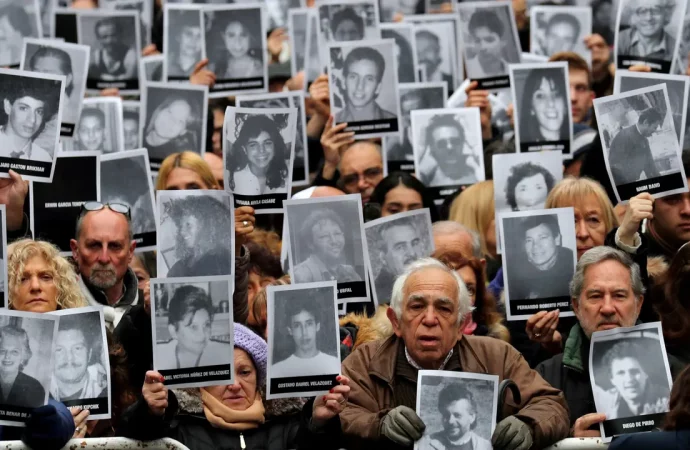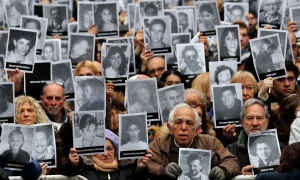Latin America has long been plagued by corruption, but few cases have garnered as much attention as the Operation Car Wash (Operação Lava Jato) scandal in Brazil. This colossal investigation, which exposed corruption at the highest levels of government and business, has had far-reaching implications across the continent. At the heart of the recent efforts
Latin America has long been plagued by corruption, but few cases have garnered as much attention as the Operation Car Wash (Operação Lava Jato) scandal in Brazil. This colossal investigation, which exposed corruption at the highest levels of government and business, has had far-reaching implications across the continent. At the heart of the recent efforts to dismantle this probe stands Judge X, whose actions have stirred both controversy and debate. This article delves into the motivations, actions, and repercussions surrounding Judge X’s campaign to bury Latin America’s biggest corruption probe.
Background: Operation Car Wash
Operation Car Wash began in 2014 as a money laundering investigation at a car wash in Brasília. It quickly spiraled into a massive probe revealing widespread corruption involving state-controlled oil company Petrobras, top politicians, and major construction firms. The scandal implicated numerous high-profile figures across Latin America, leading to a wave of arrests and convictions that shook the region’s political and economic landscape.
Judge X’s Rise to Prominence
Judge X, whose real identity remains undisclosed in this article for security reasons, emerged as a key figure in the judiciary with a reputation for integrity and a tough stance on corruption. Early in their career, Judge X built a solid track record of handling complex cases and delivering stern verdicts against corrupt officials. This reputation placed them in a pivotal role within the judicial system, making their recent shift in stance particularly perplexing to observers.
Motivations Behind the Campaign
Several theories have been posited regarding Judge X’s motivations for seeking to dismantle Operation Car Wash. Some analysts suggest political pressure as a significant factor. Corruption probes of such magnitude inevitably disrupt powerful networks, leading to pushback from those implicated. There are also suggestions that Judge X may have been swayed by the argument that the probe was causing economic instability and harming Brazil’s international image. Furthermore, ideological shifts or personal beliefs about the effectiveness and fairness of the judicial process could also be influencing factors.
Key Actions and Legal Maneuvers
Judge X has employed a variety of legal strategies to undermine the probe. These include rulings that have led to the release of key suspects, questioning the validity of evidence gathered, and challenging the jurisdiction of the investigators. Additionally, Judge X has been instrumental in promoting legislative changes that limit the scope and reach of anti-corruption investigations. These actions have sparked a significant backlash from both the public and within the judiciary, raising concerns about the future of anti-corruption efforts in the region.
Public and Political Reaction
The response to Judge X’s campaign has been polarized. On one hand, supporters argue that the probe had become a witch hunt, excessively punitive, and economically damaging. On the other hand, critics view Judge X’s actions as a betrayal of justice, potentially enabling corrupt individuals to evade accountability. Public protests, media campaigns, and statements from international watchdogs have all highlighted the contentious nature of this issue.
Comparative Analysis: Before and After Judge X’s Intervention
To understand the impact of Judge X’s actions, it is crucial to compare the state of anti-corruption efforts before and after their intervention.
| Aspect | Before Judge X’s Intervention | After Judge X’s Intervention |
|---|---|---|
| Prosecution Rates | High, with numerous convictions and ongoing cases | Significantly reduced, many cases dismissed |
| Public Perception | Strong support for anti-corruption efforts | Increasing skepticism and distrust in the judiciary |
| Economic Impact | Short-term economic instability, long-term reforms | Stabilization claimed, but long-term impact unclear |
| Legislative Environment | Supportive of extensive investigations | More restrictive, limiting probe scope |
| International Reputation | Viewed as a model for anti-corruption | Tarnished, concerns about commitment to justice |
Analysis Table: Factors Influencing Judge X’s Decisions
| Factor | Description | Impact on Judge X’s Decisions |
|---|---|---|
| Political Pressure | Influence from powerful political and business figures | High – Likely a significant factor given the high stakes involved |
| Economic Arguments | Concerns about the economic impact of prolonged investigations | Moderate – Could provide justification for limiting the probe |
| Ideological Beliefs | Personal views on the justice system and the effectiveness of punitive measures | High – Fundamental beliefs about justice and fairness may drive decisions |
| Legal Precedents | Previous legal rulings and interpretations of the law | Moderate – Legal framework and precedents provide the tools for action |
| Public Opinion | Reaction from the general populace and media | Variable – Strong public backlash could influence future actions |
| International Pressure | Views and actions of international anti-corruption bodies | Moderate – International opinion can sway domestic policy but has limited direct impact |
Long-term Implications
The efforts to bury Operation Car Wash have profound implications for Latin America’s fight against corruption. The dismantling of such a high-profile probe could embolden corrupt actors and weaken future investigations. It may also lead to a loss of public faith in the judiciary, with long-lasting effects on governance and democratic stability. Conversely, if Judge X’s actions are viewed as restoring balance and fairness to the legal process, they could usher in a new era of judicial reform focused on procedural integrity.
Conclusion
Judge X’s drive to bury Latin America’s biggest corruption probe has set off a firestorm of debate. While the motivations behind these actions are complex and multifaceted, the repercussions are undeniably significant. As Latin America grapples with these developments, the balance between fighting corruption and ensuring judicial fairness remains a critical challenge. The legacy of Operation Car Wash, and Judge X’s role in its downfall, will undoubtedly shape the region’s legal and political landscape for years to come.

















